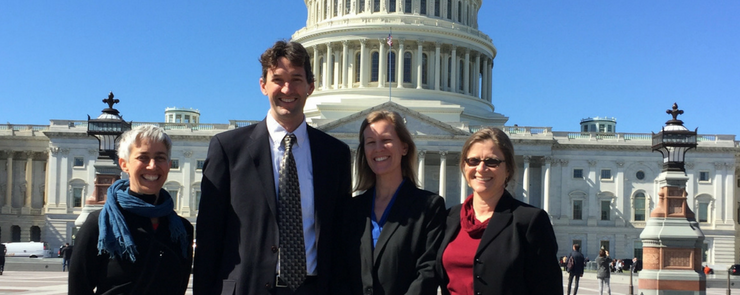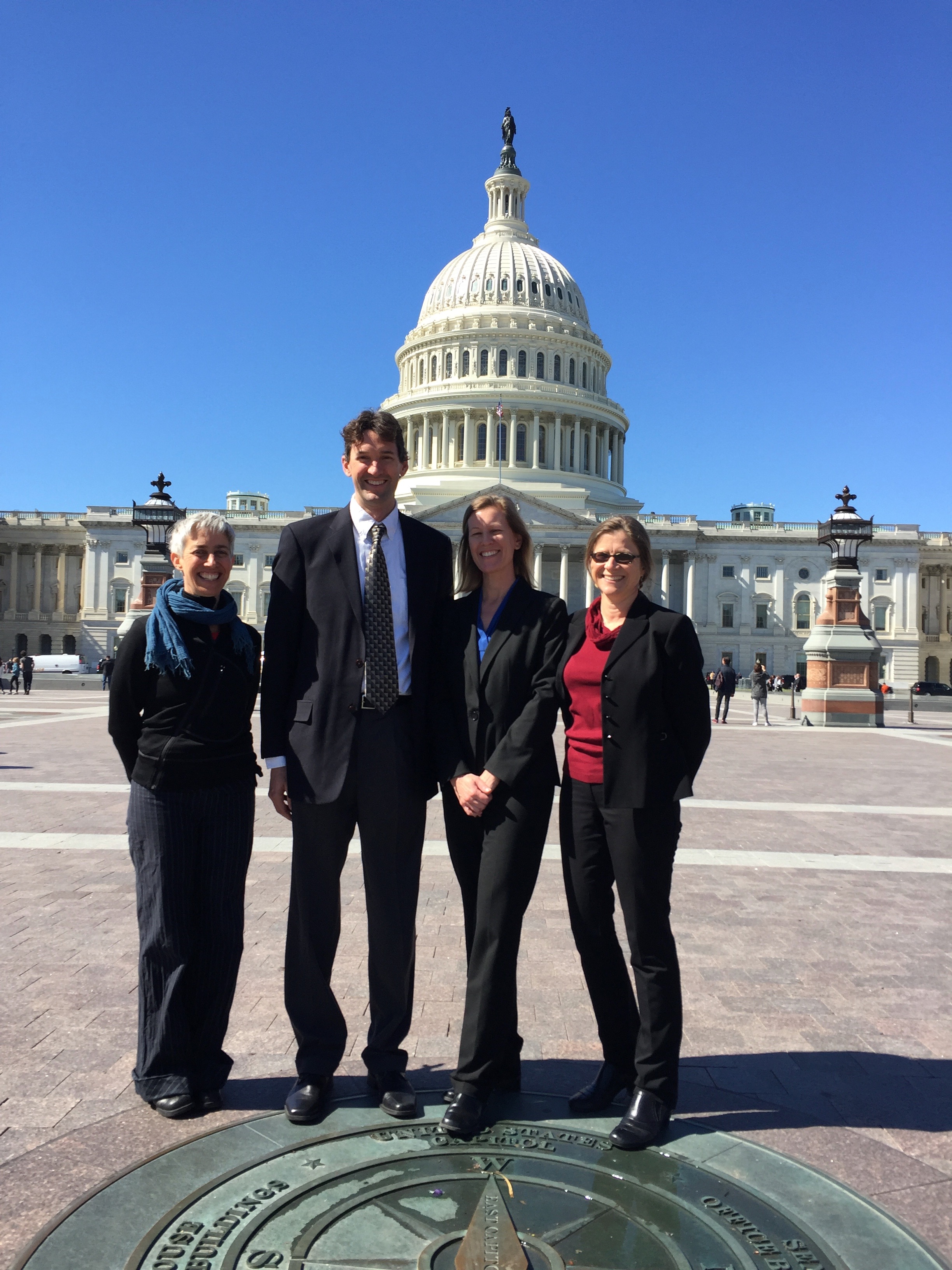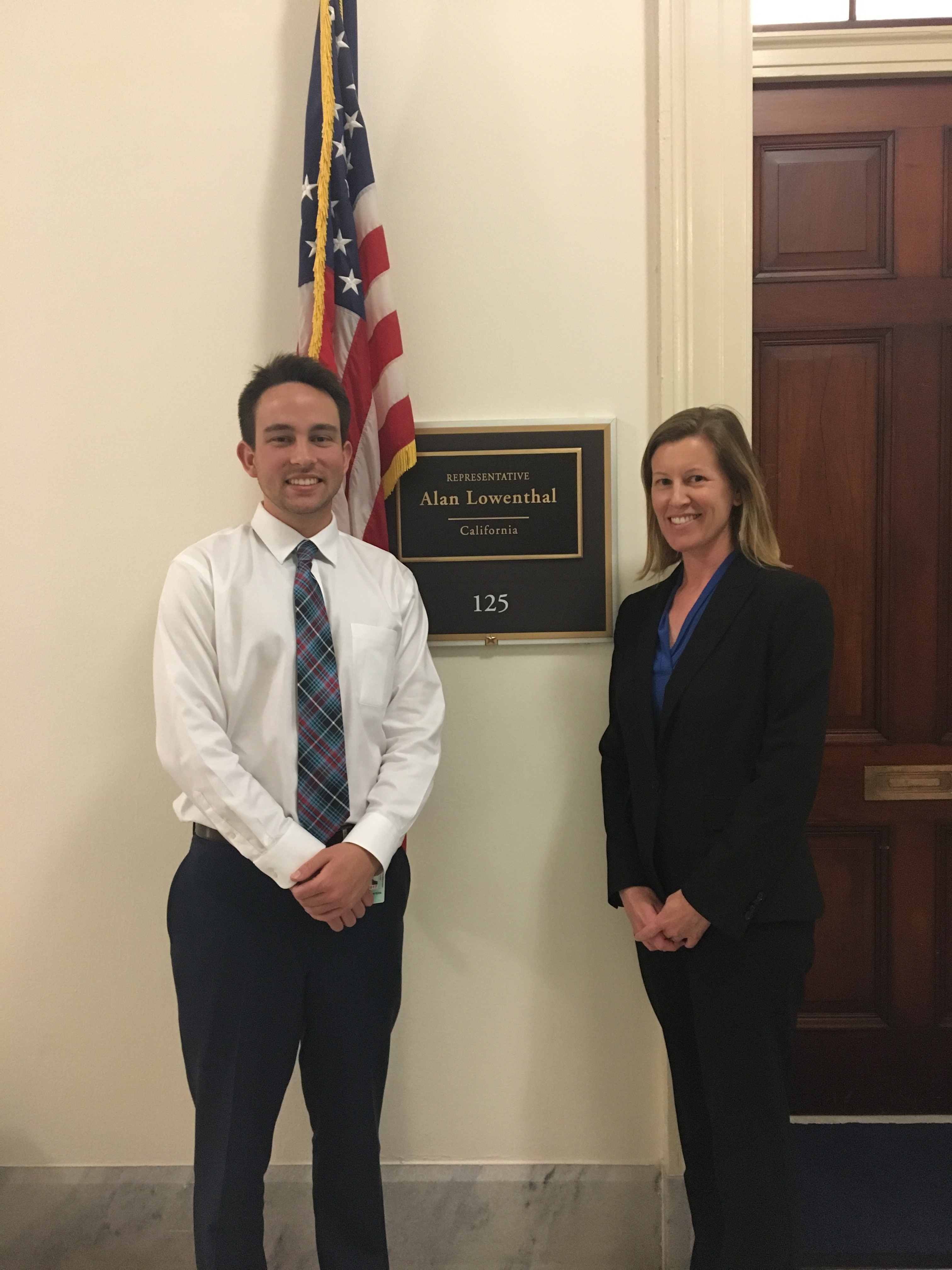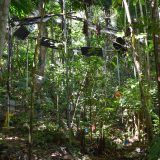
Scientists Should Advocate for Research Funding
March 23, 2017
Last week, President Donald Trump revealed his first budget proposal which would cut funding for several science agencies. Budgets for the Environmental Protection Agency (EPA) and the National Institutes of Health (NIH) would experience the largest cuts, roughly 18-30%. While these cuts are extreme, non-defense spending on research and development has been declining steadily since 20041. We do ourselves a huge disservice by reducing funds for scientific research. The EPA and NIH, the biggest losers in the President’s proposed budget, perform critical functions for our nation by enhancing human health through biomedical and environmental research. Other agencies like the National Science Foundation (NSF), which were not specifically mentioned in the proposal, are anticipating cuts as well. NSF differs from other science agencies by supporting basic (as opposed to applied) research. NSF has funded most of my research at Chapman, which has enhanced our understanding of invasive plant species and supported many undergraduates working on independent research projects.

Our advocacy group included, pictured from left to right, Amy Zanne (George Washington University), Steve Allison (UC Irvine), Jennifer Funk (Chapman University), and Jutta Burger (Irvine Ranch Conservancy).
While federal funding is critical for many areas of science, the President’s budget proposal demonstrates that we can’t count on this funding. Scientists need to be proactive on a number of fronts to ensure funds for scientific research. First, scientists need to do a better job communicating their science to the general public and lawmakers. We can’t expect the public to understand the value of scientific research if we are not directly communicating our results. On March 8, I traveled to Washington DC with my colleagues from UC Irvine, Irvine Ranch Conservancy, and George Washington University. We met with staffers working with six House Representatives from southern California and discussed how results from federally-funded research projects were solving problems in their districts. The majority of the staffers we talked to, from both parties, were receptive to our message. If more scientists did this, we would be hard to ignore.
Second, in light of steady declines in federal funding for research, scientists should pursue non-federal funding sources. One option is to forge collaborations with industry partners. Many companies, from Microsoft and NVIDIA to DuPont and Pfizer, provide funding for academics to work on specific problems2. Here at Chapman, computer scientist Erik Linstead has received funding from Experian, Anivive, and CoreLogic to support his research3. These academic-industry collaborations demonstrate that science is a critical part of the US infrastructure resulting in economic growth and, ultimately, job creation.

Jennifer Funk (Associate Professor of Biology) and Clayton Heard (Environmental Science and Policy, class of 2016), who is an intern with House Representative Alan Lowenthal.
Industry funding is likely out of reach for some scientific disciplines, so it’s important that federal funds continue to support basic research. It’s worth noting that the amount of money allocated for scientific research is a small fraction of that allocated to other federal functions like defense and health care1. Additionally, many of these agencies are extremely efficient, meaning that a large portion of their funds go directly to research as opposed to administrative costs. My trip to Capitol Hill was educational and, surprisingly, positive. It sparked my interest in advocating for science and I encourage everyone in the scientific community to do the same.
1https://www.aaas.org/fy16budget
2http://www.sciencemag.org/careers/2008/03/finding-industry-funding
Jennifer Funk, Ph.D., is associate professor of Biological Sciences and directs the program in Schmid College of Science and Technology. She has been recognized at Chapman University with the 2017-19 Wang-Fradkin Senior Professorship and the 2012 Wang-Fradkin Assistant Professorship for exceptional merit in scholarly and creative activity, the 2010 Valerie Scudder award for outstanding faculty achievement in teaching, scholarship, advising and service, and the 2009 Achievement award for excellence in scholarship.

